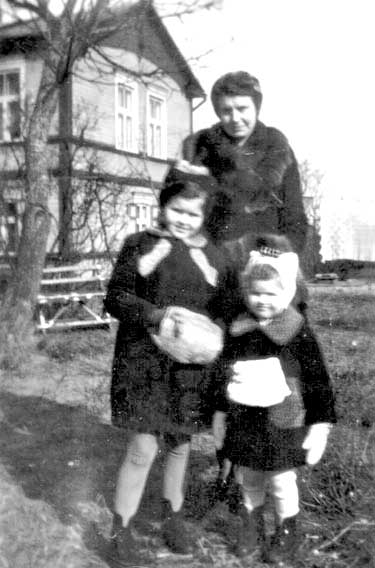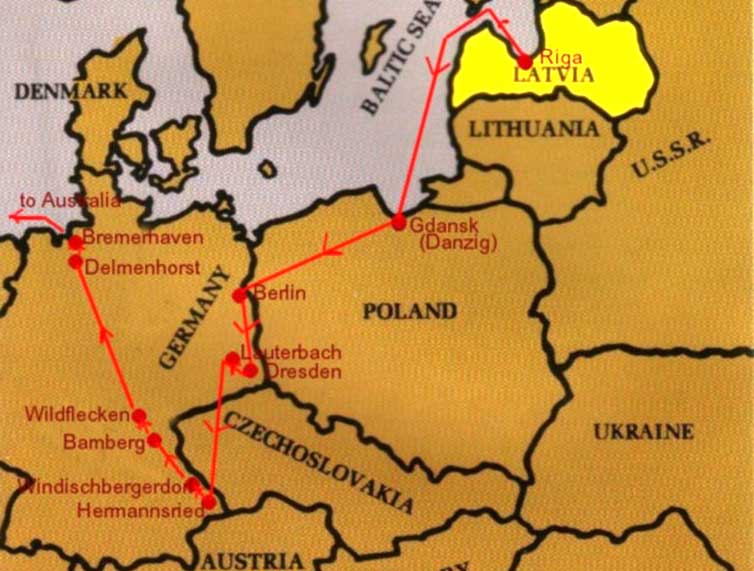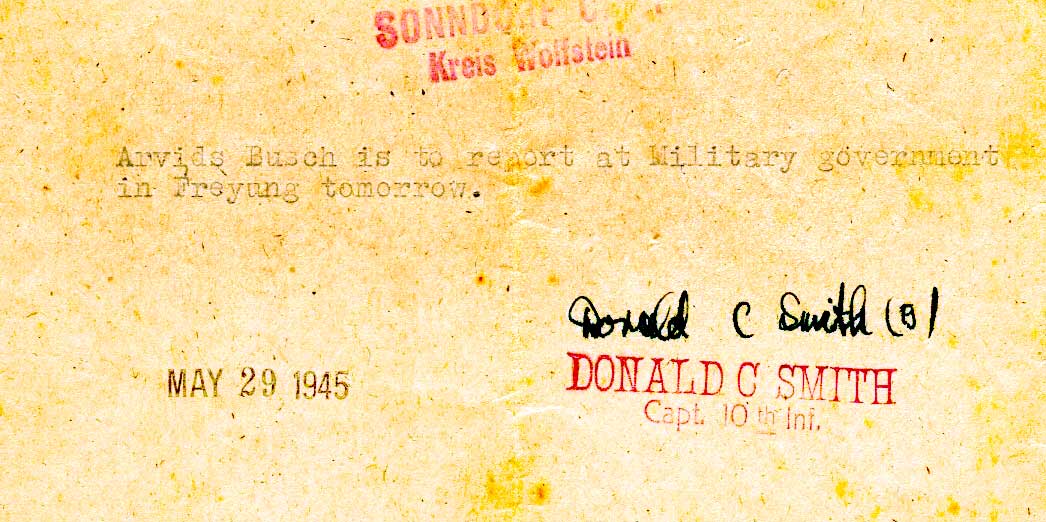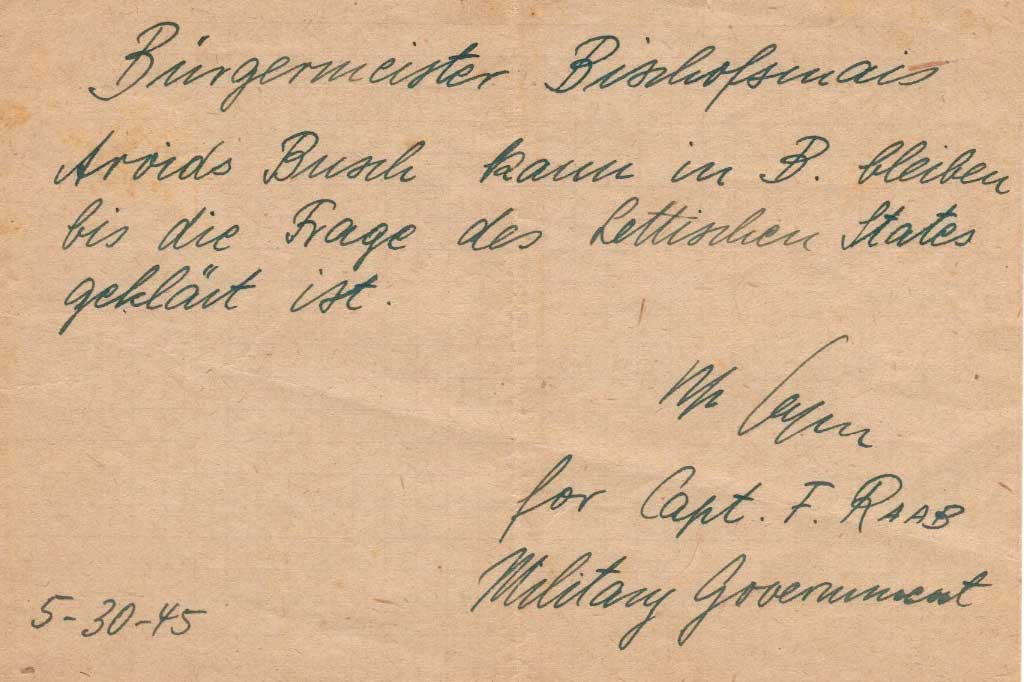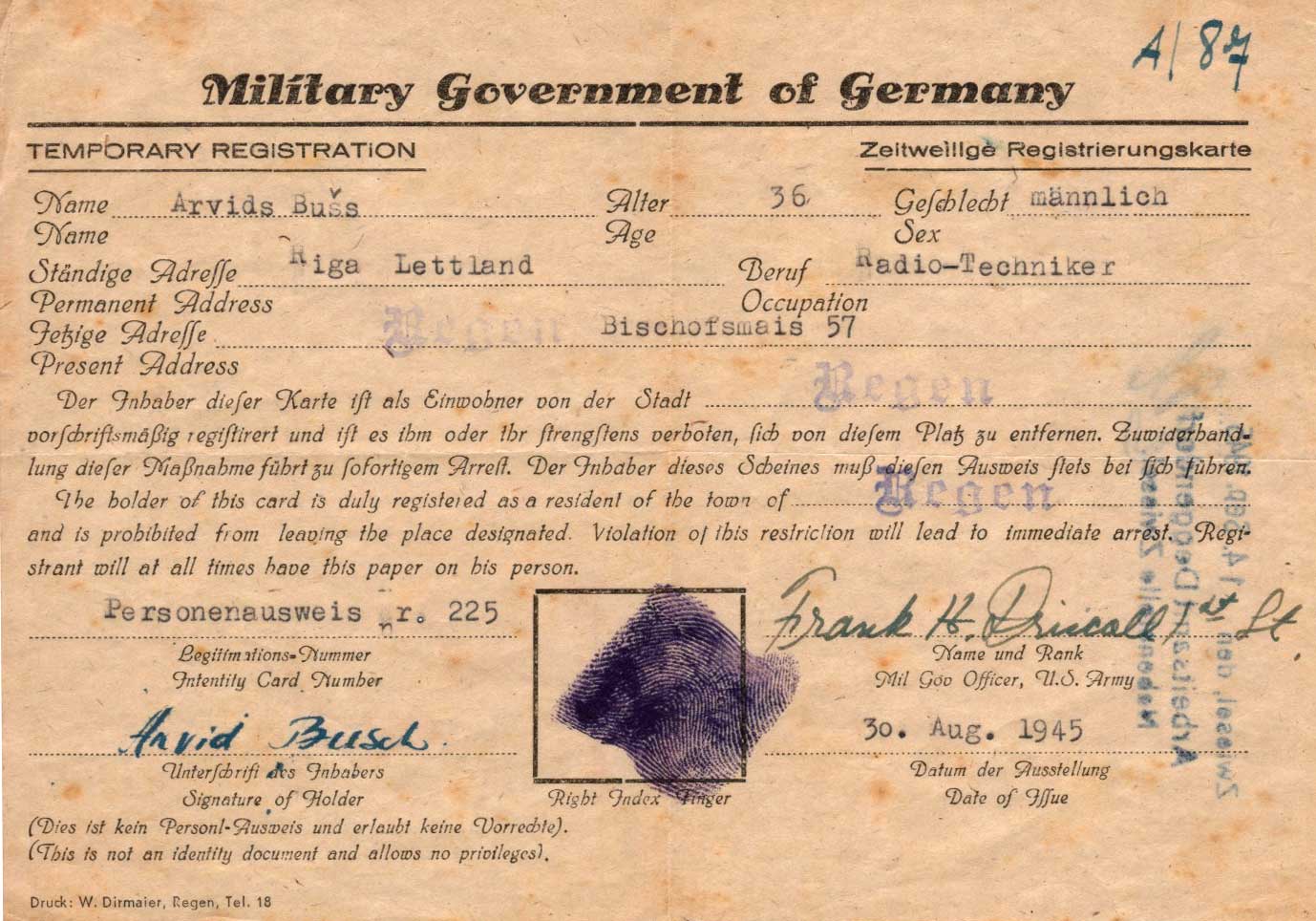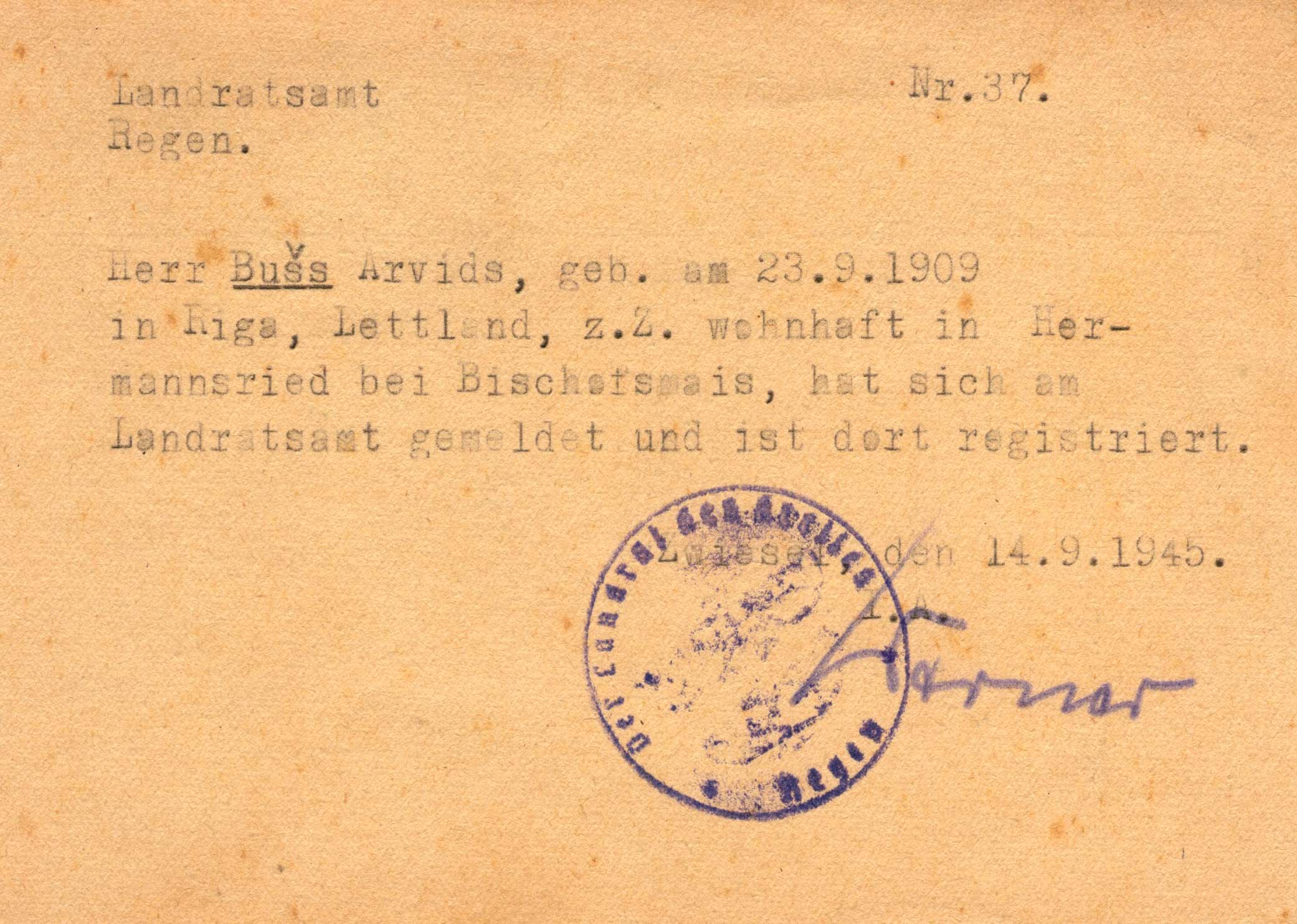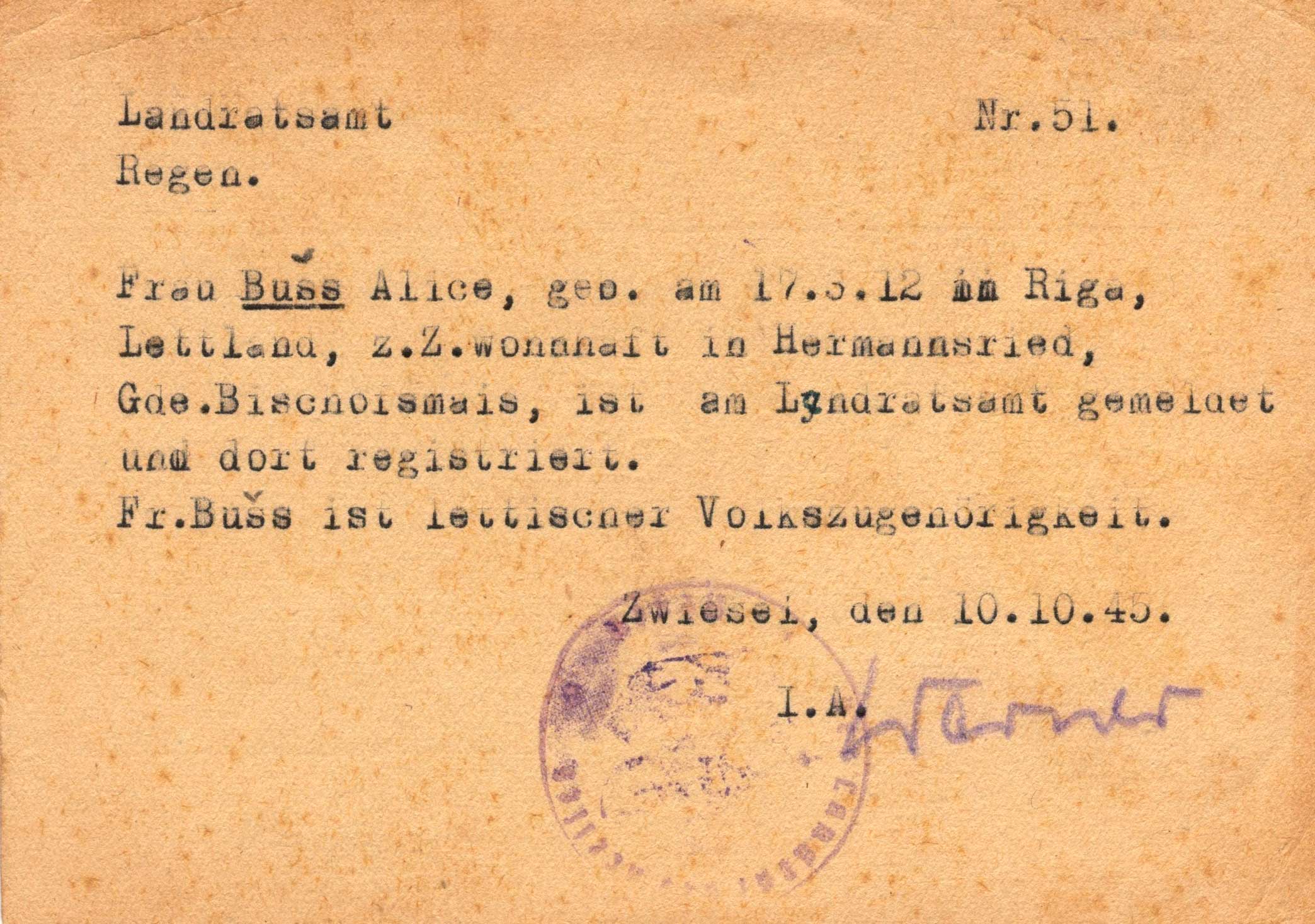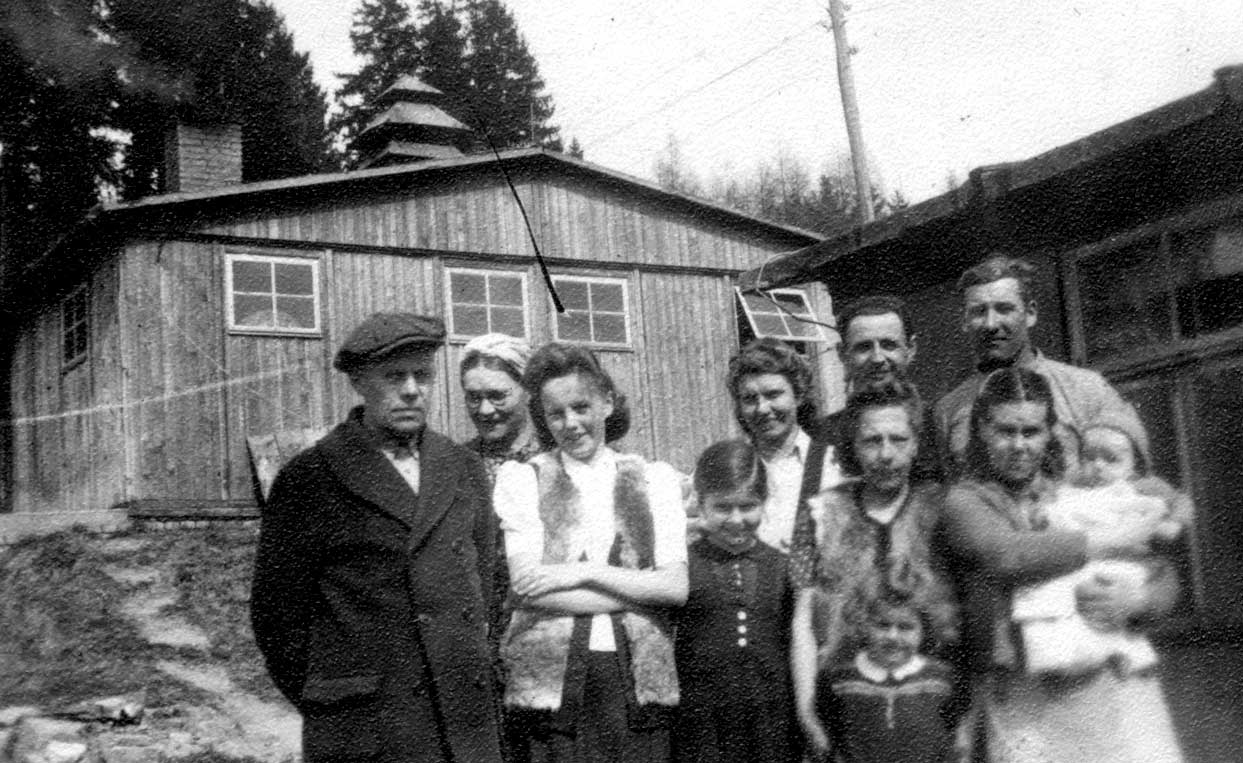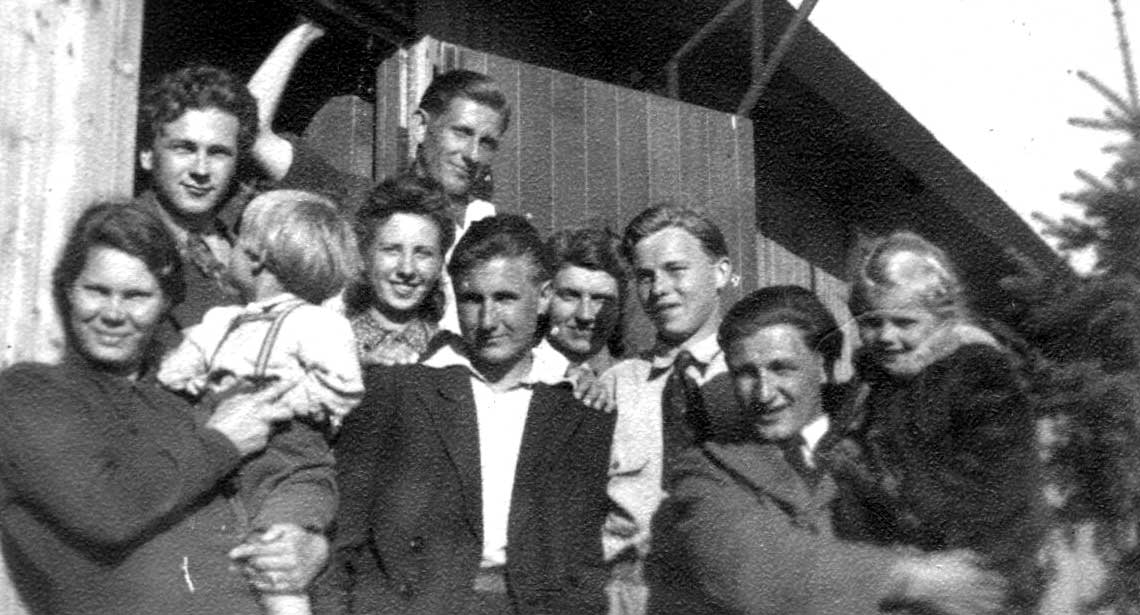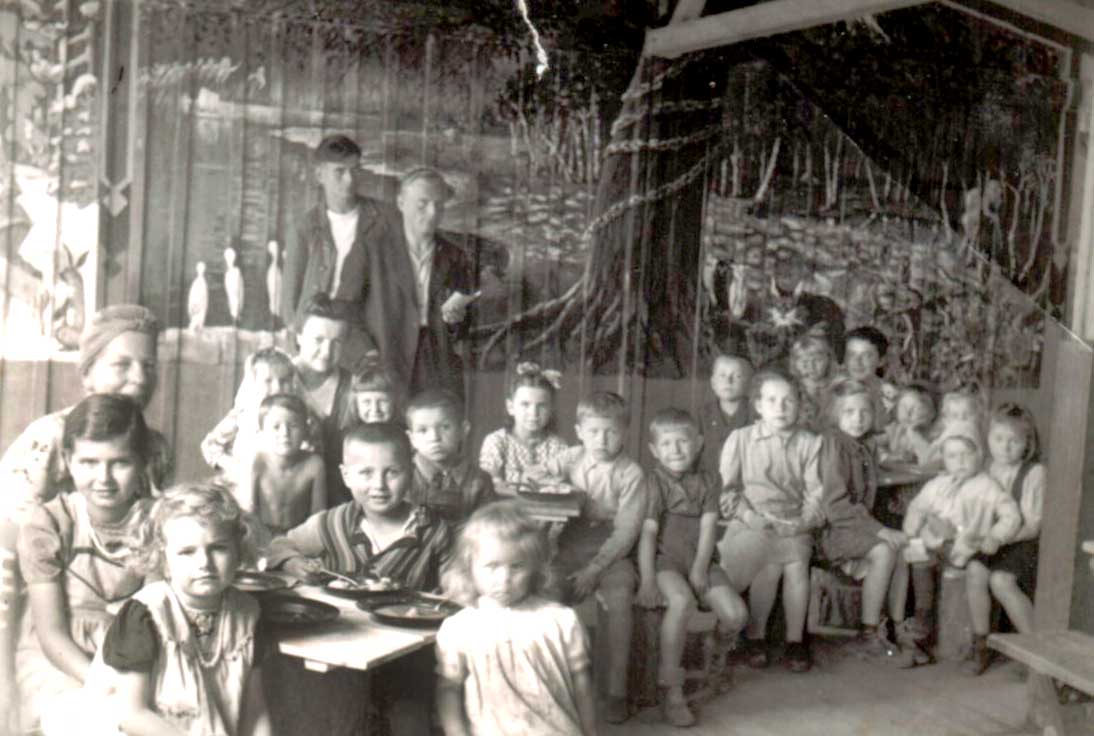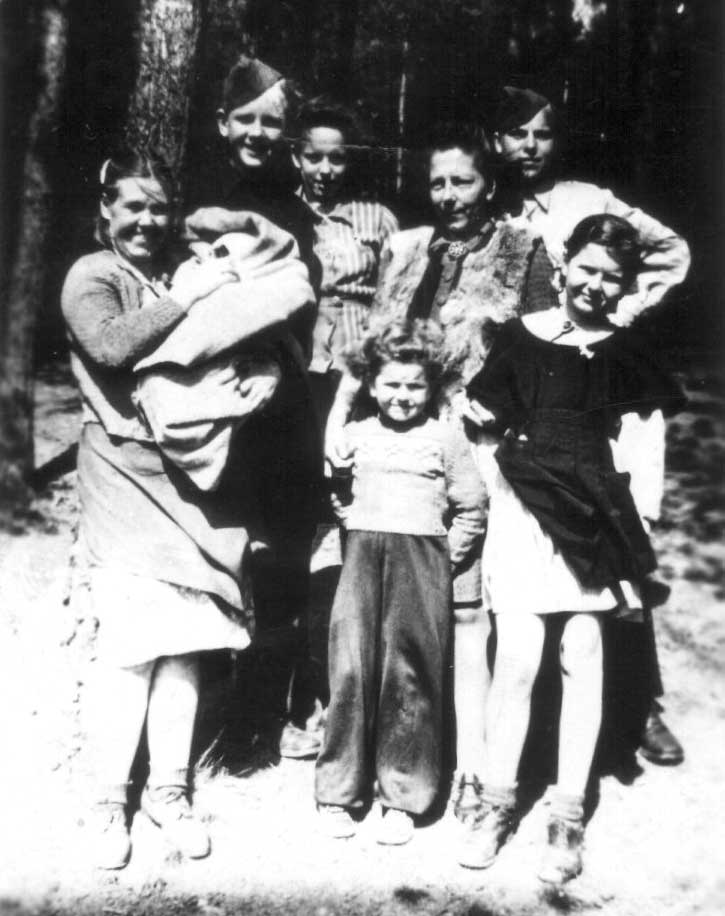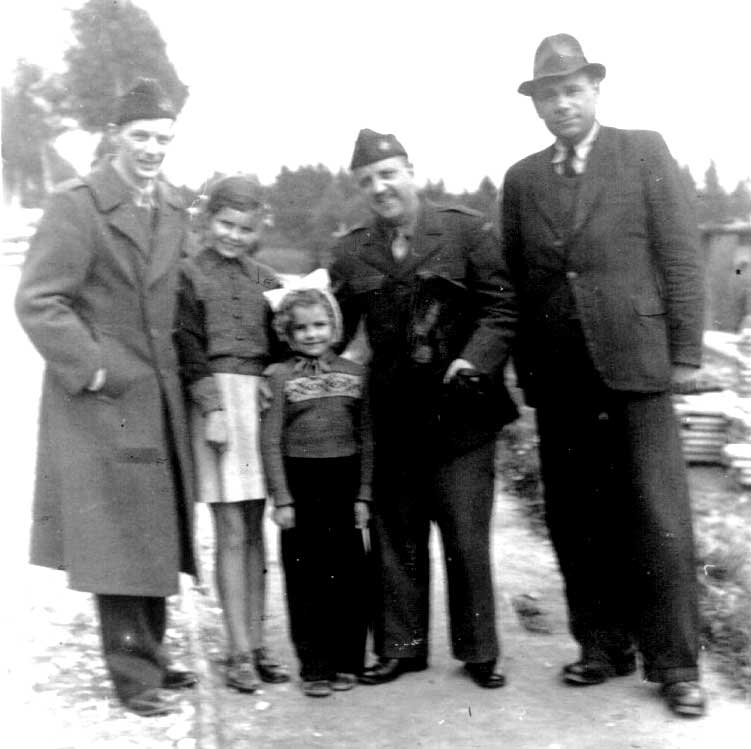Displaced Persons - Windischbergerdorf DP Camp in Germany
Inara
Bush of Australia has supplied us with these photos of Windischbergerdorf.
If you see your family in these photos, email her to receive higher 1200
dpi images: inite@live.com.au
Last photo of Latvia, Easter 1944. Anita age 8, Alise age 32, Inara age 3. We spent 6 years as refugees in Germany.
My mother, Alise Buss (pronounced Bush), my elder sister Anita and I, Inara, were evacuated from Riga by ship in July 1944. The Soviet Army re-occupied Latvia in October 1944. My father, Arvids, a soldier in the Latvian Army, remained in Latvia. He tracked us down in the hamlet of Hermannsried some weeks after the war ended on May 8, 1945. We lived in DP camps in Windischbergerdof, Bamberg, Wildflecken and Delmonhorst until we boarded an IRO ship at Bremerhaven in August 1950, bound for Australia under its DPs Immigration Scheme.
Order given to my father on his reunion with us in Hermannsried.Our fate depended on this note. Translated it reads: "Mayor of Bischofsmais. Arvids Busch may stay in B. until the question of the Baltic States is clarified." Many refugees were being repatriated to their countries of origin, the Military Govenment declaring their countries to be the same as before the war.
Temporary registration and identity card signed by US Army in Regen.
Translation: Town Hall Regen. Mr. Buss Arvids, born on 23.9.1909 in Riga, Latvia, resident in Hermannsried near Bischofsmais, has reported at theTown Hall and is registered there.Translation: Town Hall Regen. Mrs. Buss Alice, born on 17.3.12 in Riga, Latvia, residing in Hermannsried, near Bischofsmais, has reported at the Town Hall and is registered there. Mrs. Buss is Latvian [ethnic, origin, nationality?] Shortly after this registration, we were directed to Windischbergerdorf via Ruhmannsfelden.
Windischbergerdorf, near Cham, Germany, 1946. The first United Nations Relief and Rehabilitation Administration (UNRRA) Displaced Persons (DP) camp to which we were directed after Hermannsried. Alise and Arvids in the centre of back row, Anita in centre of next row, Inara in front. On the way to the camp, we were processed for some weeks at a facility in Ruhmannsfelden where DP's health status was assessed. This included being lined up naked, each adult and child being sprayed from head to foot with DDT powder form a pump action spray can. Most of us had lice and DDT was the magic pesticide of the time.
DPs and UNRRA workers at one of the accommdation huts at Windischbergerdorf. The children's dining room at Windischbergerdorf. Anita and Inara in front on left. Summer of 1946. Front row from right, Anita and Inara with other DP camp residents. The young men wearing caps were UNRRA workers. Windischbergerdorf 1946.
Anita and Inara with (left to right) American, French and Russian officials of UNRRA. Windish. 1946. We were transferred to Bamberg later that year.
European Archives: http://councilforeuropeanstudies.org
On 5/29/08 David Kerriganwrote:
My father, Bill Kerrigan, was a US Army Lieutenant
who ran the Windischbergerdorf DP Camp from about the middle of May to
the middle of August 1945. He has had many interesting and exciting stories
to tell about his experiences at the camp, which had about 1200 people
at the time. These people had been forced by the Germans to work local
farms: men, women, and children from all over Europe, mostly Poles, Russians
and Ukrainians --even the cousin of King Zog of Albania and a Chinese acrobat
named Mickey.
Keeping the peace was not always easy, as national and ethnic resentments could run high, especially if anyone had (or seemed to have) collaborated with the Germans or any other national enemy. People did seem to be united, though, in their appreciation for American help in providing sorely needed food, shelter, and medical treatment.
I would love to be in contact with anyone with stories from that time and place. My name is David Kerrigan and my email address is David Kerrigan dwkerri@live.com
